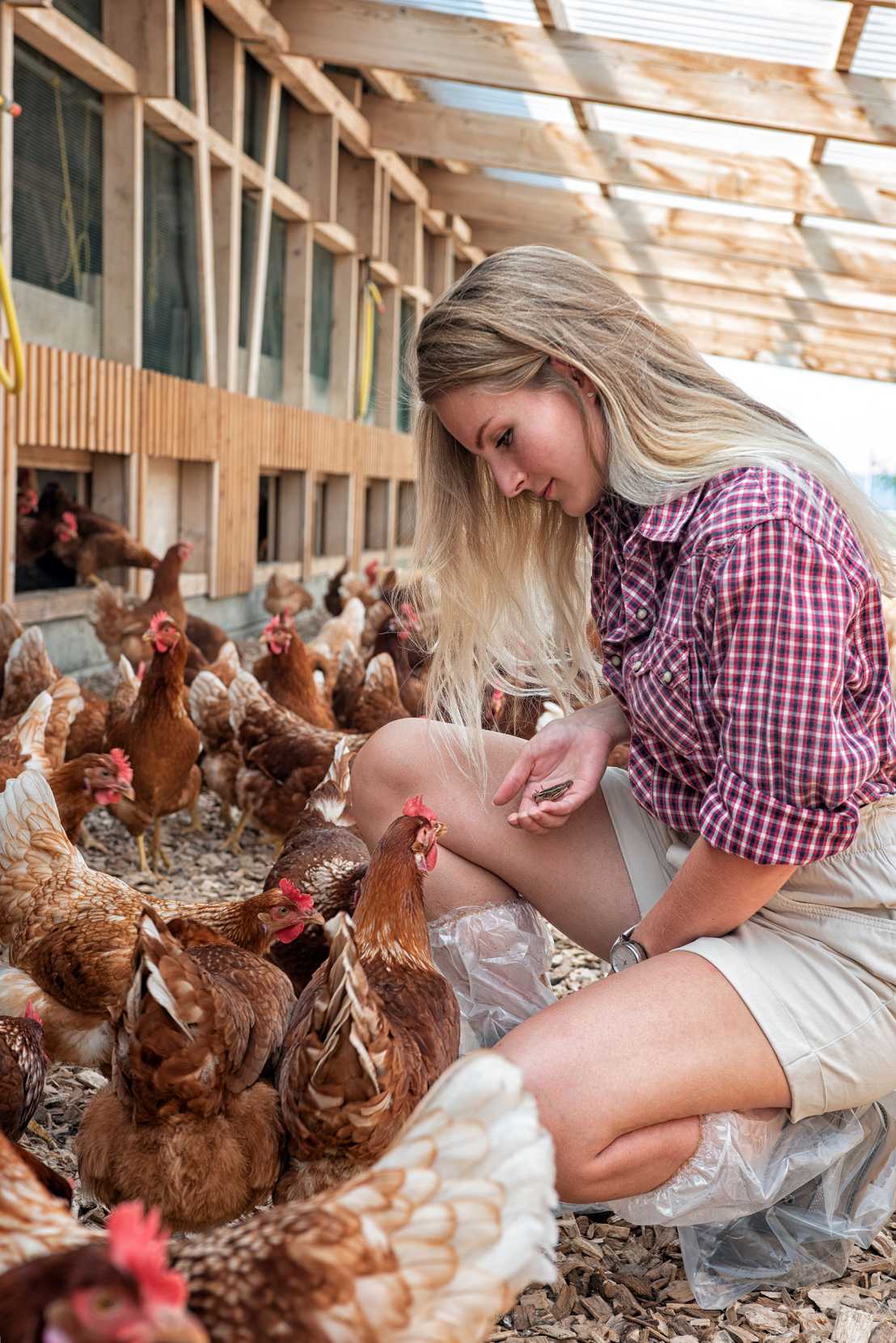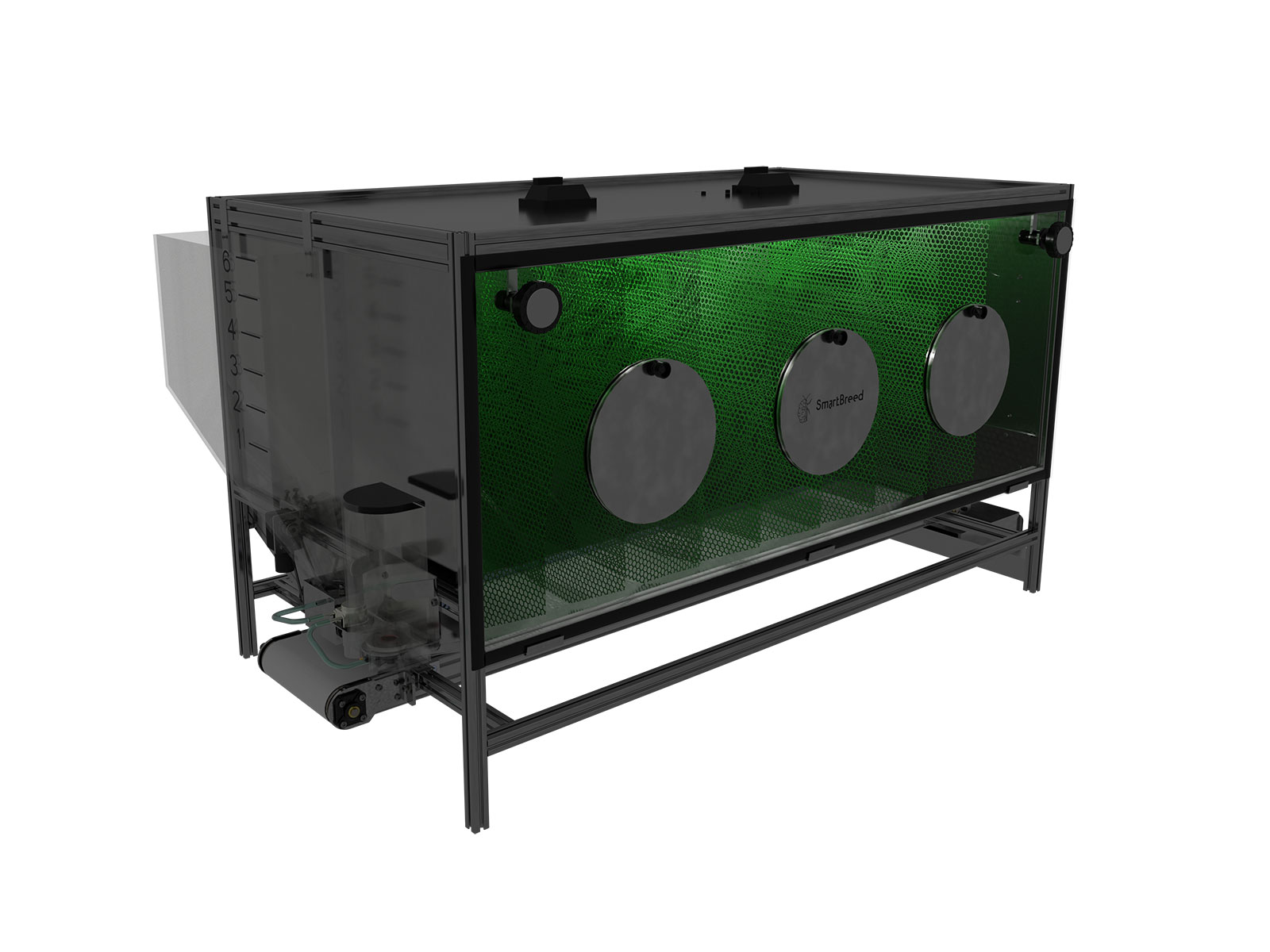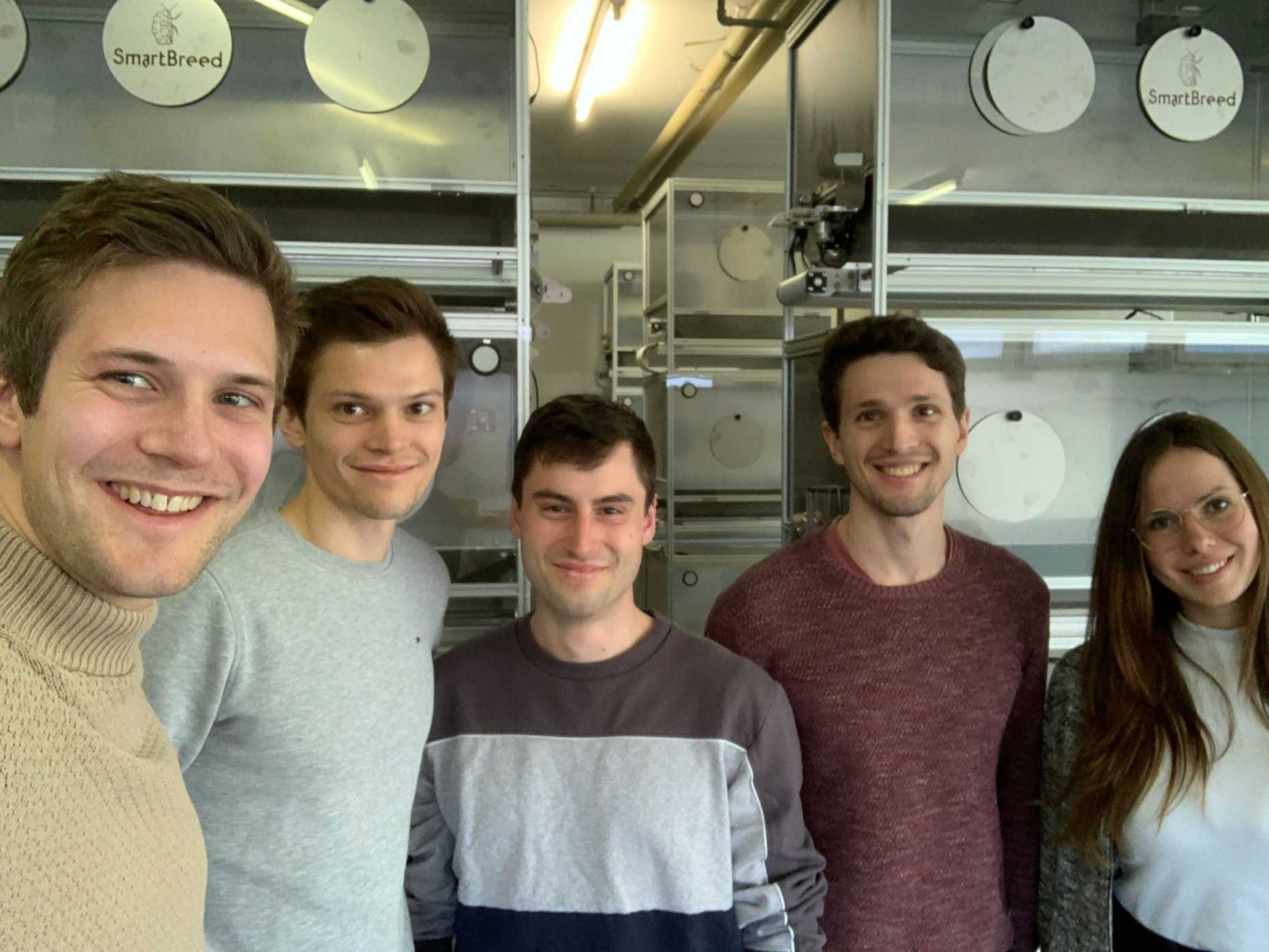Chicken feed with benefits for animals and nature
Insects enrich the diet of laying hens and bring fun to the chicken farm. ETH spin-off SmartBreed has developed a technology that enables insect breeding on the farm and provides far more than just protein snacks.
Insects are used as animal feed in many countries because of their high protein content. The crickets, flies and mealworms are centrally bred and fed dead. In Switzerland, however, feeding dead insects to chickens is currently not allowed. Therefore, mostly non-sustainable soya is on the laying hens' menu. So how do live grasshoppers find their way into the henhouse?

The new SmartBreed approach enables decentralised breeding. Crickets and grasshoppers are bred in the fully automated SmartBreed boxes, which consist of a container, sensors, and sophisticated software. The microclimate inside the box creates optimal conditions for the breeding of the insects. The box regulates itself by measuring humidity, temperature, and CO2 every second and compensates immediately in case of impending imbalance. This may happen when farmers feed lettuce leaves, for example, which increases the humidity in the box.
The feeding of the insects is done automatically via a funnel. "We supply the farms with the feed, which we produce from regional agricultural by-products such as vegetable pomace and bran," says Christoph Bertschi, CEO of SmartBreed. One funnel filling is enough for a cycle of about one month until the fully-grown insects are fed to the chickens alive. Every 4-5 days, the farmers have to clean the boxes and add fresh water.

Ideally, the SmartBreed boxes are placed in a barn at room temperature. They can easily be stacked, need a 12V power supply and an internet connection. The SmartBreed team monitors them remotely. Thus, the effort for breeding is low. For a laying farm with 2000 chickens, it takes about 15 boxes with 2000 crickets each, with half a box being fed daily.
"Chickens love grasshoppers and like catching them."Christoph Bertschi - CEO of SmartBreed
"Chickens love grasshoppers," says Bertschi, "and they enjoy catching them." In fact, many chickens in laying farms are terribly bored and therefore develop bad habits such as pecking their feet and feathers, which can sometimes lead to serious problems. "However, if you put live crickets in front of them every day, they instinctively chase them, become more active and are less bored," says Christoph Bertschi. This aspect and the quality of the eggs are currently being studied in more detail in a project funded by Innosuisse.
"The SmartBreed Box system with hardware, software, sensors, and live animals is very complex."Christoph Bertschi
Christoph Bertschi's team worked closely with Basel Zoo to develop and improve the SmartBreed Boxes. "Zoos already breed their own insects, as they are on the menu of many animals", Bertschi explains and adds: "The SmartBreed Box system with hardware, software, sensors, and live animals is very complex. We are proud that Basel Zoo is now switching to our technology." For zoos, breeding their own insects is particularly interesting because they need different insects in large numbers and buying live insects is very expensive.
SmartBreed is currently working with six chicken farms of different sizes besides Basel Zoo. They can replace some of the environmentally harmful soya with the insects they have bred themselves. Feeding the chickens with live insects is more expensive due to the low price of soya, but it is much more sustainable and serves animal welfare.
Feeding dead insects will probably also be permitted in Switzerland in the foreseeable future. Such insects and mealworms are easier to cultivate and therefore also attractive in terms of price. Soya could thus be completely replaced by insects, which would make ecological sense. Bertschi explains: "A new market is opening up. At present, very large breeding farms are being established, even though many aspects are still unclear. At SmartBreed we are testing the breeding of mealworms and soldier flies, but we are still focusing on local production. This will differentiate us from large-scale producers."
SmartBreed have now completed seed funding but are open to industry partners. They focus on medium-sized laying farms with around 2000 chickens.

Contact/Links:
external pageSmartBreedcall_made
Do you want to get more "News for Industry" stories?
external pageFollow us on LinkedIncall_made
Are you looking for research partners at ETH Zurich?
Contact ETH Industry Relations
ETH spin-offs: facts and figures
Since 1996, 496 spin-offs have been founded at ETH Zurich. ETH transfer, the technology transfer office at ETH Zurich, supports recognized ETH spin-offs in the founding process and in their first years of operation.
With the help of the Pioneer Fellowship Programme, funded by the ETH Foundation, young researchers can develop innovative products and services based on their scientific work at ETH Zurich. A Pioneer Fellowship is awarded to young ETH entrepreneurial minds intending to develop a highly innovative product or service to be exploited commercially and/or for the benefit of society.
Offers for entrepreneurs at ETH
Press release ETH spin-offs January 2022: "Battling climate change and the pandemic"
